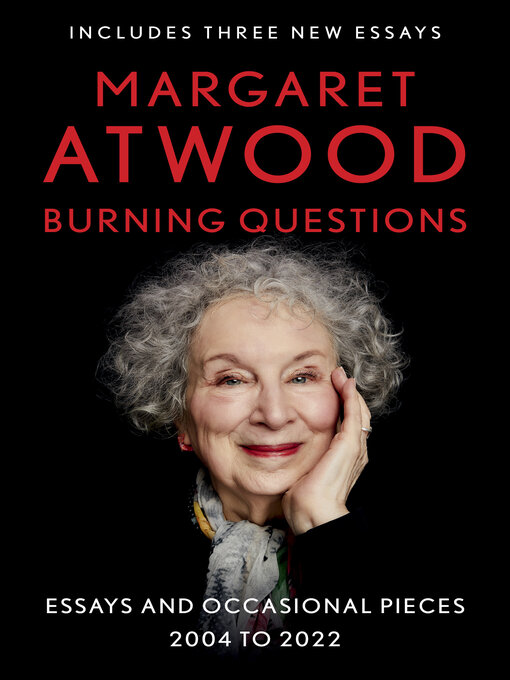
• Why do people everywhere, in all cultures, tell stories? Including thoughts on the writing of The Handmaid’s Tale, The Testaments, Oryx & Crake, and Atwood's other beloved works.
• How much of yourself can you give away without evaporating?
• How can we live on our planet?
• Is it true? And is it fair?
• What do zombies have to do with authoritarianism?
In more than fifty pieces, Atwood aims her prodigious intellect and impish humor at the world, and reports back to us on what she finds. This roller-coaster period brought the end of history, a financial crash, the rise of Trump, and a pandemic. From when to dispense advice to the young (answer: only when asked) to Atwood’s views on the climate crisis, we have no better guide to the many and varied mysteries of our universe.
-
Creators
-
Publisher
-
Release date
March 1, 2022 -
Formats
-
Kindle Book
-
OverDrive Read
- ISBN: 9780385547505
-
EPUB ebook
- ISBN: 9780385547505
- File size: 5910 KB
-
-
Accessibility
-
Languages
- English
-
Reviews

Loading
Why is availability limited?
×Availability can change throughout the month based on the library's budget. You can still place a hold on the title, and your hold will be automatically filled as soon as the title is available again.
The Kindle Book format for this title is not supported on:
×Read-along ebook
×The OverDrive Read format of this ebook has professional narration that plays while you read in your browser. Learn more here.